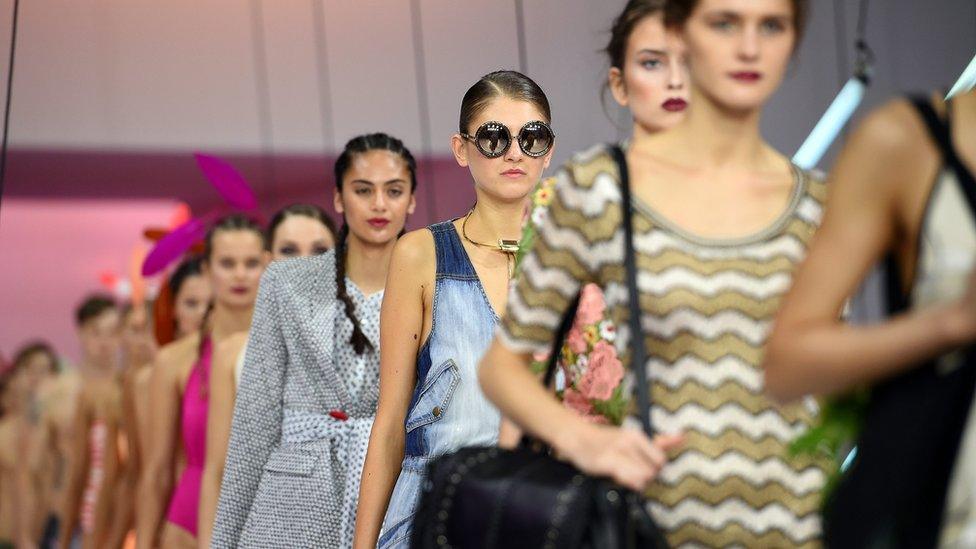British Vogue uses 'real women' in special issue
- Published
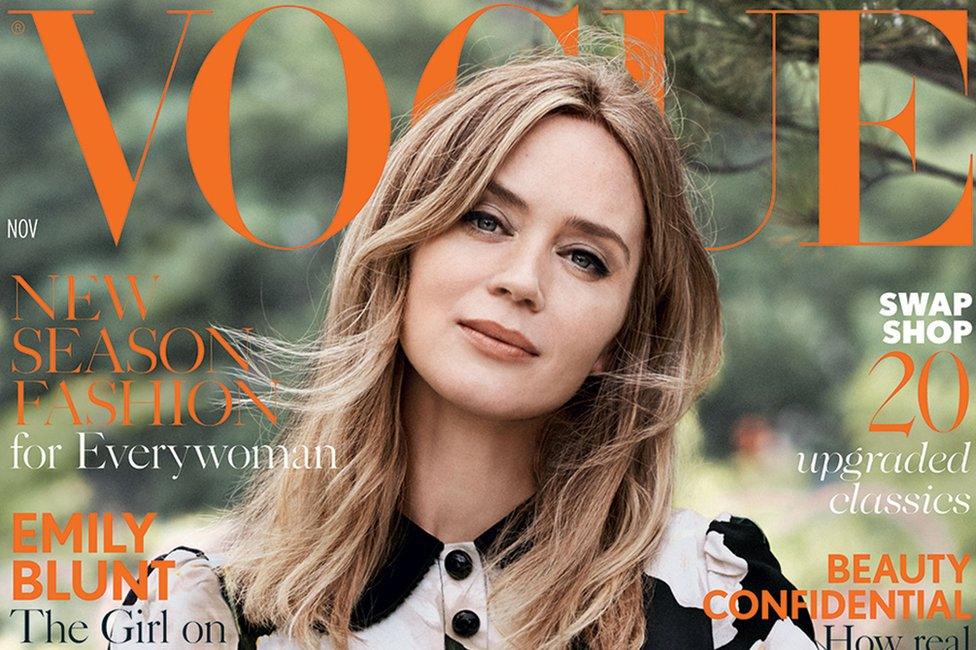
British Vogue's November issue will use academics and businesswomen instead of models on its fashion pages and in editorial features for the first time.
But actress Emily Blunt is on the cover and models will appear in adverts.
Editor Alexandra Shulman said the difficulties she had in securing sample designer clothes for non-models for shoots made her want to explore what women wear through a "real" filter.
One campaigner welcomed the move as a "positive example of good work".
Tetraplegic journalist Melanie Reid, who writes a weekly column for the Times Magazine, Unruly Media video marketing company co-founder Sarah Wood, architectural historian Shumi Bose and ice cream entrepreneur Kitty Travers all appear in the issue.
The magazine, on sale from Thursday, explores topics including what "real" beauty is, and how successful women work a wardrobe.
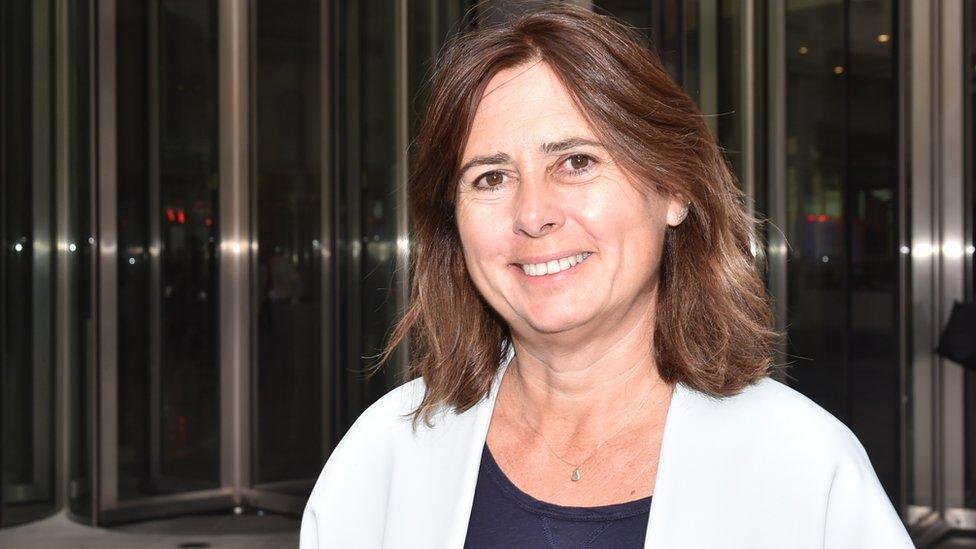
Editor Alexandra Shulman says the UK now has a prime minister 'who clearly enjoys thinking about how she dresses'
Ms Shulman said of the issue's theme: "The combination of a newspaper commentariat - which is always keen to leap critically on a woman in the public eye who dresses even the slightest bit adventurously - alongside a professional culture that still encourages a conventional conformity, makes it hard for some women to dress the way they would really like to.
"Now we have a prime minister who clearly enjoys thinking about how she dresses - and is not afraid to wear jazzy shoes, bright colours and clothes that draw attention rather than deflect it - there really is no excuse."
Digitally altered
Mental health and body image commentator Natasha Devon applauded the trend for using images of "real" women in fashion and beauty.
But she warned that if magazines still digitally altered their images, it could still put pressure on women and girls to adhere to unrealistic standards of shape and beauty, without recourse to the idea that the subjects were "professional models".
There has been long-standing criticism of the fashion industry, its designers, shops, magazines and advertising, for using models who convey an unrealistic image of the size of women.
The average UK size is a 12, with many designer sample sizes a UK 8 or below.
As part of its #NoSizeFitsAll campaign, the Women's Equality Party has called on designers to use a range of sample sizes, external, and the party urged Vogue's editor to back its efforts to persuade the British Fashion Council to compel designers attending London Fashion Week 2017 to do so.
Body confidence
The YMCA is one group involved in the Be Real Campaign for body confidence, external which aims to help people put health above appearance. YMCA England's CEO Denise Hatton welcomed Vogue using images that more accurately reflected how women look as a "positive example of good work".
But she said it was only a small step towards a culture that "actively and consistently" promotes diversity.
She said the campaign group of schools, people, charities, businesses and public bodies is due to launch an "image code" asking industries to reflect the UK's diversity by showing people of "all shapes and sizes, skin tones, genders, ages, ethnicities, disfigurements, abilities and disabilities".
"Only when the images we see in magazines and across the industry reflect what we truly look like will we finally be able to feel more body confident, leading to a healthier and happier nation," she said.
Trend 'follower'
Marisa Bate, senior editor at website The Pool, said, external that while it was debatable how "real" a glossy magazine featuring luxury products could be, "the move is interesting because it shows a shift in positioning."
"Vogue is trying to stay culturally relevant and changing tack," she said, adding: "In this way, Alexandra Shulman is following the cultural agenda, not setting it, and the magazine is having to bend its boundaries to feel relevant to a younger generation that has begun to reject the 'perfect', airbrushed images that normally fill their pages."
Ms Shulman has previously criticised fashion houses for sending sample clothes too small for many models to wear.
The magazine called on designers to consider the consequences of issuing such sizes, which limited the range of women who could model the clothes, encouraging the use of extremely thin women and girls.
- Published8 September 2016
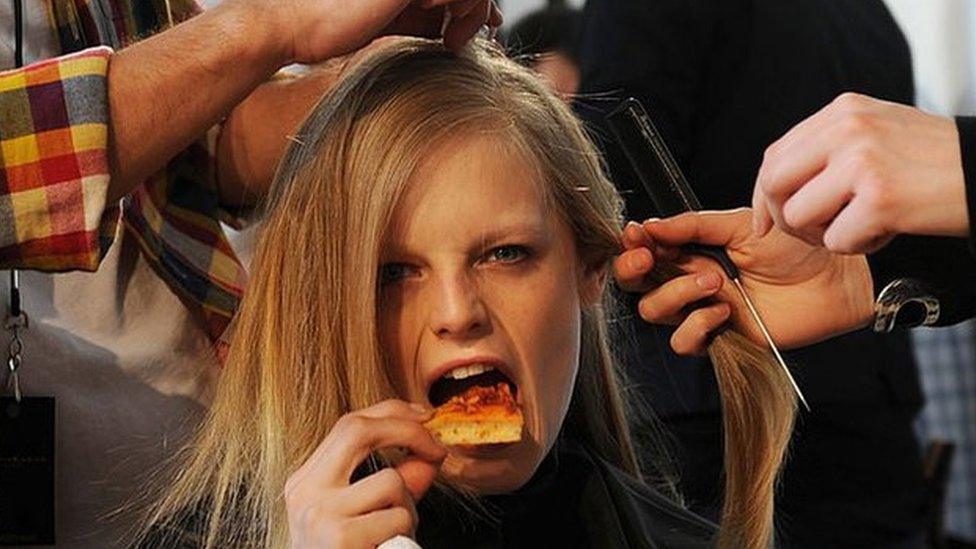
- Published27 September 2016
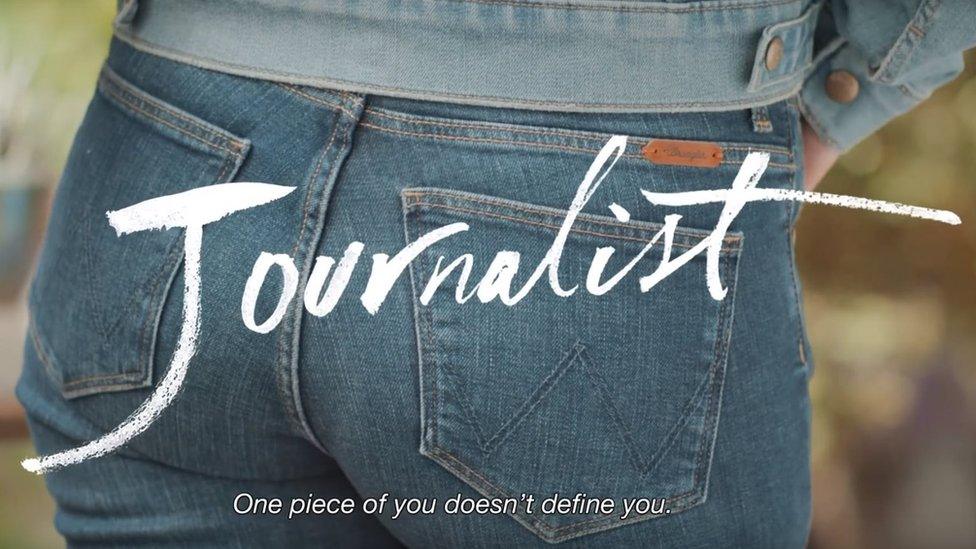
- Published6 September 2016
